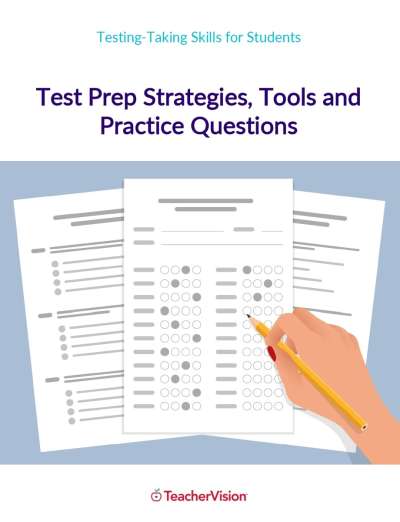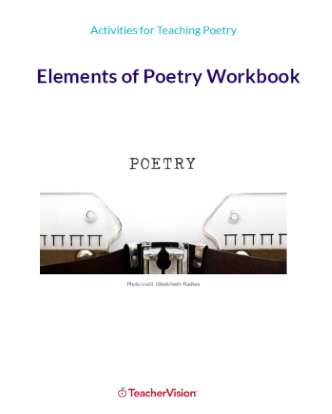Note: Some teachers will want to use this Chapter-by-Chapter guide to vocabulary words and response/discussion questions below. Others will choose to have students work in reading response journals to record their thoughts and feelings as they read the novel. A section of Suggestions for Reading Journal Entries follows the Chapter-by-Chapter portion of the guide.
Chapter 1:
basking (p.3)
carapace (p.3)
plastron (p.4)
Literary Terms:
Point of view is one of the most basic elements in the craft of fiction. Quite simply, it means,'Who is telling the story?' A story will vary greatly depending on who is narrating. In this book, the story is told from the point of view of a young, red-eared turtle. But although the story is seen through the eyes of Bartleby, it is told in the third person voice of the narrator.
Questions:
1. Examine point of view in this chapter. Who is telling the story?
2. How does Bartleby feel about his bath?
3. What does he think of the boys? What clues do you get that help you answer this?
Chapter 2:
treading (p.7)
panicky (p.9)
Questions:
1. Find some examples of turtle point of view such as "eye windows, " which is what Bartleby calls Jeff's glasses. Choose an animal, imagine you are the animal, and write a list of things you might see in a room in your house from the animal's perspective.Bartleby in nest
2. What kind of mood is Bartleby in at the end of the chapter? How does the author convey his mood?
Chapter 3:
maroon (p.11)
dandruff (p.12)
Questions:
1.What is Bartleby's reaction to the television show Natural World?
2. What do you think of Josh's behavior? Explain.
Chapter 4:
foe (title page)
swiftness (p.16)
myriad (p.16)
writhing (p.17)
Questions:
1. What season is it in this chapter?
2. What clues tell Bartleby that a new season has come? Which of his senses does he use?
Chapter 5:
swoop (p.19)
lapped (p.22)
Questions:
1. Why is Davy frustrated?
2. Make a prediction about what you think will happen in Part Two.
Chapter 6:
ache (p.27)
forefoot (p.28)
tuft (p.29)
appellation (p.29)
wafted (p.30)
pang (p.31)
forage (p.32)
hatchlings (p.32)
Literary Terms:
Descriptive writing refers to writing that creates an image the reader can see in his or her mind. It often employs more than one of the five senses, and may use small details to help convey the big picture. Descriptive writing is one of the techniques a writer uses to set the mood of a story.
Character refers to what an individual is like on the inside. In a way a person's-- or a turtle's-- character is like an iceberg: you only see the tip poking out, but underneath the surface there is a great wealth of thoughts and feelings that make the character whole.
Questions:
1. Find two examples of descriptive writing that appeal to your senses. Comment on how these passages help you relate to Bartleby's experiences.
2. What do you think of Mudly? How would you describe his character? What do you think makes his personality the way it is?
3. Bartleby has a dilemma at the end of the chapter. What is it? What do you think of his decision?
4. What do you think Mudly meant when he said, " If I were you I wouldn't tell anyone that you're from the Mighty Mississippi."?
Chapter 7:
rhythm (p.34)
prey (p.35)
flees (p.35)
boasting (p.36)
maggot (p.38)
skittish (p.39)
indisputable (p.39)
Literary Term:
Foreshadowing is a literary device authors use to give readers a hint of something that will occur later in the book.
Questions:
1. What is the bullfrog's name and why is it appropriate?
2. Of the creatures Bartleby has met so far, who do you like, and why?
3. Can you find an example of foreshadowing at the end of this chapter? What do you think it is? What do you think will happen?
Chapter 8:
scaling (p.40)
emerge (p.40)
Questions:
1. In order to learn to hunt, Bartleby must use all of his senses. Think of an activity you have learned to do, such as swimming, riding a bike, skate boarding, playing an instrument, or dancing. Try to describe how that activity feels using as many of the five senses as you can.
Chapter 9:
vibrations (p.44)
perched (p.46)
Questions:
1. Make a prediction based on the title of the chapter. What do you think will happen?
2. What is unusual about Zip?
3. Retell in your own words the reason why Zip is guarding Mother Wak's eggs.
Chapter 10:
dabbled (p.51)
morsels (p.51)
pungent (p.51)
acrid (p.51)
Questions:
1.What kinds of feelings does Bartleby experience when he meets the painted turtles? Have you ever felt this way? Explain.
2.Why do you think the big painted turtle treats Bartleby the way he does?
Chapter 11:
hunkered (p.56)
churn (p.58)
Questions:
1. What will happen to Bully in the next chapter? Make a prediction.
Chapter 12:
hatchling (p.62)
Literary Term:
A simile is a figure of speech that compares two things using the words like or as.
Questions:
1. Zip tells Bartleby he's brave. Why doesn't Bartleby think he's brave? What do you think?
2. The author uses many similes, such as "Bully sprang and vanished like a raindrop in a puddle, " (pg. 60) and, "Above Bartleby's plastron, his heart was fluttering like a gnat's wings. " (pg. 61) Look through previous chapters and find other similes to share with the class.
3. Try writing a simile for muskrat and his love for lilies, or Zip and her bravery in protecting Mother Wak's eggs.
Chapter 13:
utter (p.67)
caressed (p.67)
giddy (p.68)
cunning (p.69)
leech (p.69)
putrid (p.70)
Questions:
1.What does Bartleby learn about "the Claw, the Paw and the Jaw " in his conversation with Mudly?
Chapter 14:
tendril (p.72)
Literary Term:
Alliteration is the repetition of consonant sounds--usually at the beginning of words (e.g, Bartleby of the Big Bad Bayou).
Questions:
1. Find an example of alliteration in this chapter.
2. What does the snake keep calling Bartleby? What effect does it have on you to hear him repeat this over and over again?
3. Who has grabbed Bartleby and pulled him under the water? What will happen next?
Chapter 15:
yearning (p.77)
bayou (p.79)
Questions:
1. This chapter comes at about the halfway point of the book. How has Bartleby changed since the beginning of the story? Do you think he should stay in the pond or go back to Davy?
Chapter 16:
prowl (p.84)
wistfully (p.84)
groped (p.84)
Questions:
1. What qualities does Bartleby have that make him a good friend to the other creatures at the pond?
2. What technique does Bartleby use to keep himself and his friends out of danger? Use the events of this chapter to explain.
Chapter 17:
groggy (p.91)
undignified (p.93)
Questions:
1. What encouragement do Bartleby's friends offer him when he is disappointed in himself? Write about a time a friend encouraged you and made you feel better.
Chapter 18:
junket (p.96)
mite (p.97)
gorging (p.97)
glumly (p.99)
Questions:
1. What does Junket's name make you think of? Look up the meaning of the word 'junket.' In what ways do you think his name fits his personality?
2. What choice does Bartleby make? Why do you think he makes the choice he does at the end of the day?
Chapter 19:
salutations (p.103)
fry (p.103)
surged (p.104)
Questions:
1.What do you think Seezer meant when he said, "And I will greet you with a warm welcome, Mississippi- ssstyle. "?
Chapter 20:
crave (p.106)
Questions:
1. What is Bartleby's most pressing problem right now? How do you think it will be solved?
Chapter 21:
hospitality (p.112)
Questions:
1. Before reading the chapter, make a prediction of which character will reappear and what events might occur.
2. How has your opinion of Bully and Kingfisher changed? Do you think most people have both good and not-so-good qualities? What are yours?
Chapter 22:
carcasses (p.22)
Questions:
1. Without looking at the book, can you remember Junket's directions to the traveling water?
2. Re-read the last paragraph on page 116. What might the author be foreshadowing when she talks about the "pull " Bartleby feels in his middle? (For a definition of foreshadowing, see page 6 of Teacher's Guide.)
Chapter 23:
stench (p.117)
dependable (p.119)
eerily (p.120)
Questions:
1. Where is Bartleby? Why did he go there?
2. What characteristics of a turtle do you think make Bartleby a heroic creature?
Chapter 24:
urgent (p.123)
blurted (p.123)
quest (p.124)
heed (p.125)
plight (p.125)
rout (p.125)
gait (p.125)
mocking (p.126)
Questions:
1. How would you describe Seezer's behavior in this chapter?
2. Make a prediction. What will happen next to Bartleby and Mother Wak?
Chapter 25:
catapult (p.128)
nuisance (p.128)
bountiful (p.129)
devoured (p.129)
perplexed (p.130)
edibles (p.130)
retorted (p.131)
Questions:
1. Do you think Seezer is trying to trick Bartleby? In what way?
2. Should Bartleby go with Seezer? What would you advise him to do if he asked your opinion? Make a T-chart listing the reasons to stay in the big water place and the reasons to go to the Mighty Mississippi.
Chapter 26:
conviction (p.134)
glee (p.134)
roam (p.134)
Questions:
1. On page 135, Zip says, "When pond creatures grow, they often go. " What do you think the author is trying to say about Bartleby? Do you think this statement is also true for children? In what way?
2. What is Bartleby's big decision?
Chapter 27:
captor (p.143)
hurled (p.143)
Questions:
1. What kind of animal captures Bartleby in the woods?
2. In what way does Seezer's behavior seem to be changing at the end of this chapter?
Chapter 28:
hedge (p.145)
Questions:
1. Where are Bartleby and Seezer?
2. What do you think would happen if they got caught?
Chapter 29:
hazy (p.148)
emitted (p.150)
rivulets (p.151)
Literary Term:
Onomatopoeia refers to words that imitate the sound of the things or actions they describe.
Questions:
1. The author uses the word "plipping " on page 150. What is the sound this word imitates? Can you come up with some onomatopoeia of your own? Suggestions: Create a word that describes the sound a washing machine makes. Create a word that describes the sound of a skateboard rolling down the sidewalk.
2. How would you describe the relationship between Bartleby and Seezer at this point in their journey?
Chapter 30:
thicket (p.152)
Literary Term:
Irony is a type of humor based on using words to suggest the opposite of what they seem.
Questions:
1. Were you surprised to learn about the unusual eggs? What are they?
2. On page 154, why is it ironic when one of the humans says, "I heard they've got alligators in this pond "?
Chapter 31:
ectasy (p.156)
wafted (p.156)
mingled (p.156)
alertly (p.157)
bellow (p.158)
embankment (p.158)
Questions:
1. What character traits would you use to describe Seezer at the end of this chapter? How is this different from your opinion of Seezer when Bartleby first met him? Chapter 32:
motionless (p.161)
grief (p.162)
current (p.163)
rasped (p.164)
Questions:
1. Did the ending surprise you? Explain.
2. Were you satisfied with the ending of the story? Is there anything you would add or change? Explain.












